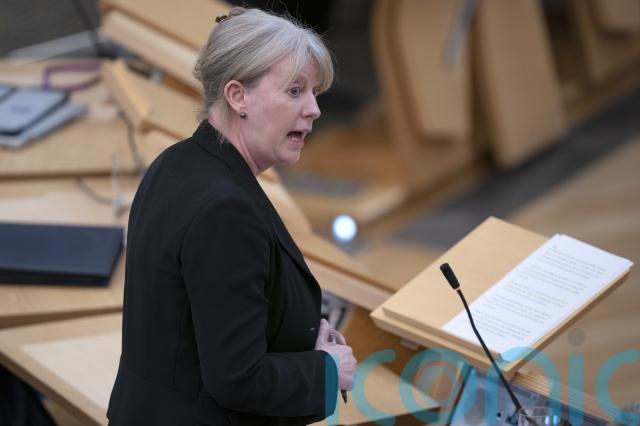
The UK Government is taxing the oil and gas industry “to death”, a trade body has said as the Chancellor refused to scrap the windfall tax.
The energy profits levy (EPL) was placed on the profits of oil and gas firms as a result of the cost-of-living crisis.
But concerns have been raised in the energy sector that it was disincentivising firms to invest and hurting jobs, with many – including the Sottish Government – pushing for it to be scrapped, or at least reformed, in Wednesday’s Budget.
Chancellor Rachel Reeves refused to change the levy, which is due for expiry by the end of the decade, despite a projected dip in revenues – falling from £2.7 billion last year to £1.1 billion in its final full year of operation.
Reacting to the news, Aberdeen and Grampian Chamber of Commerce chief executive Russell Borthwick said: “The industry put forward a case for a reformed EPL that would have delivered more than 100 projects, £50 billion of investment and protected around 160,000 jobs.
“Crucially, it would have also delivered an additional £10 billion in tax revenues over the next decade.
“Without so much as a mention in the Chancellor’s statement today, the UK Government has instead opted for a cliff-edge end to North Sea production and to tax the industry to death inside five years.
“Jobs will be lost in their thousands as a direct result of this Government’s failure to act.
“As the voice of business in the north-east of Scotland, we will refocus our efforts on ensuring that this jobs and economy-wrecking tax is brought to an end as soon as possible.
“Aberdeen is not going down without a fight.”
Speaking to the PA news agency after the Budget was announced, Scottish Finance Secretary Shona Robison said the continuation of the levy was “one of the biggest disappointments”.

“It has real-life consequences in the here and now for jobs in Scotland, whether that’s in the north-east of Scotland, of course, Mossmorran as well,” she said, referencing the ethylene plant in Fife which was recently slated for closure by owners ExxonMobil.
“We could have seen the energy profits levy ended before 2030 and that would have given confidence to the sector.
“It’s deeply disappointing that there was nothing to be said about that today and that will unfortunately continue to put jobs at risk.”
Speaking in a debate in Holyrood, Scottish Tory energy spokesman and North East MSP Douglas Lumsden said there was an “oil and gas emergency” ongoing.
“The EPL is remaining and the intake from it is tailing off dramatically as they kill off the industry and thousands of jobs with it. It is completely, completely wrong,” he said.
Mr Lumsden said the policy would further the decline of Scotland’s oil and gas industry, something he said was “self-inflicted and driven by political policy” and “a classic case of shooting ourselves in the foot”.
In a briefing for Scottish journalists following the Budget announcement, Chief Secretary to the Treasury James Murray said the industry was being asked to “make a fair contribution” to the transition away from fossil fuels.
He said: “We are asking the oil and gas industry to make a fair contribution to the clean energy transition, while also recognising they have a critical role to play in the UK’s energy mix for many years to come.
“What we want to do is to move from an energy profits levy to a stable oil and gas price mechanism, and we have worked very closely with the industry over many months to develop the price mechanism, which will provide certainty and stability for the future.
“That will come in in 2030 at the latest.”
Mr Murray added: “This is about moving away from the energy profits levy to a long-term, stable solution we have developed with the industry, doing so in a fair and predictable way.”
Simon Francis, co-ordinator of the End Fuel Poverty Coalition, said the Chancellor had been “right” to maintain the energy profits levy while also looking to reform it when its current period ends.
Mr Francis said: “Given tax rises elsewhere in the Budget, it would have been perverse to have then handed a tax break to companies that are making extraordinary profits during the crisis.”
Subscribe or register today to discover more from DonegalLive.ie
Buy the e-paper of the Donegal Democrat, Donegal People's Press, Donegal Post and Inish Times here for instant access to Donegal's premier news titles.
Keep up with the latest news from Donegal with our daily newsletter featuring the most important stories of the day delivered to your inbox every evening at 5pm.